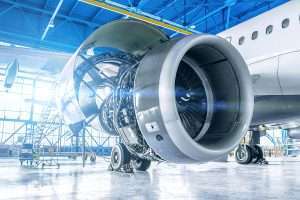AFKLMP Cargo introduces goSAF

Customers can set the level of their contribution to sustainable aviation fuel (SAF) for every cargo shipment they book.
This is part of its pledge to tackle climate change, achieving net-zero CO₂ emissions in 2050. AFKLMP Cargo believes that the best way to achieve a more sustainable future for the airfreight industry is by joining hands with customers.
With goSAF, customers using the myCargo booking portal can set the level of their contribution to SAF for each shipment.
AFKLMP Cargo gives customers a choice of four contribution levels, which will allow them to proportionally reduce their contribution to CO₂ emissions when booking.
The underlying CO₂ emissions calculator determines the expected CO₂ emissions of the shipment and calculates the costs of compensating for this by investing in the purchase of SAF.
GertJan Roelands, senior vice president sales and distribution, said: “When our customers decide to contribute to SAF, they not only reduce the CO₂ emissions of their own shipments, but also contribute to more sustainable supply chains for their customers and help them and the broader cargo industry reduce impact on the environment. By working together and gradually increasing the percentage of SAF used to power every flight, we can really make a difference in achieving a more sustainable airfreight industry.”
goSAF is the logical next step following the introduction of AFKLMP Cargo’s customer-oriented SAF programme, which was the first of its kind, launched in 2020.
The Cargo SAF programme enables forwarders and shippers to fuel their flights with a percentage of SAF.
Customers choose their own contribution level, while we ensure that the investment is fully utilised to purchase SAF.
When investing in SAF, customers receive an independently certified report specifying the amount of SAF purchased in terms of traffic volume, giving an indication of the resulting reduction in CO₂ emissions. The programme has already welcomed 40 partners.


















